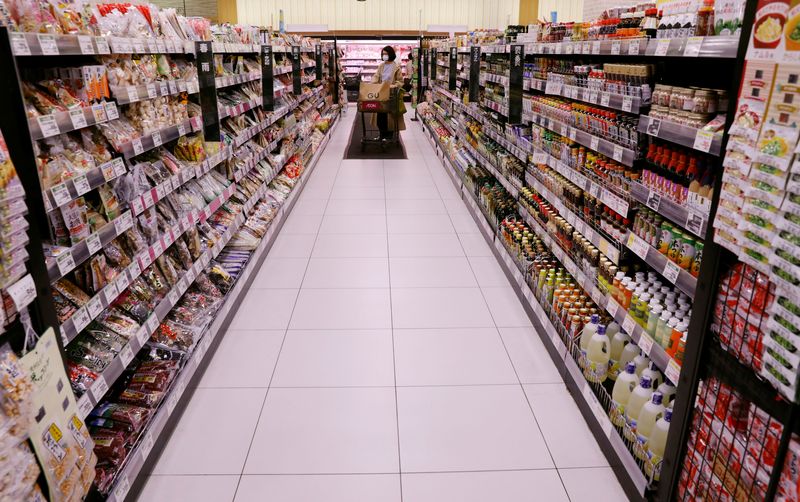By Tim Kelly and Chris Gallagher
TOKYO (Reuters) - Hiromichi Akiba is stocking his Tokyo supermarket with more chicken because customers who used to buy beef are switching to cheaper meat as rising prices put a squeeze on their spending, his business and Japan's economy.
Japan unexpectedly fell into recession at the end of last year as domestic consumption, which accounts for more than half of the nation's economy, faltered.
The 0.4% fall in economic output on an annualised basis in the three months to December means that Germany, rather than Japan, is now the world's third-biggest economy behind the United States and China.
It isn't the first economic downturn Akiba has faced. He opened his store in 1992 as the economic boom that made Japan the world's No. 2 economy gave way to stagnation. It is, however, one of the toughest yet as inflation and a sustained depreciation of the Japanese yen push up labour, transport and energy costs that are difficult to pass on to the shoppers who come to his discount supermarket looking for bargains.
"Customers used to come with lists knowing what they wanted to buy, but now more are deciding what to get after seeing what is cheap," he said at his store in a Tokyo suburb next to baskets offering quartered Chinese cabbage heads for 52 cents and crowns of broccoli for 67 cents.
Japan's retailers are "at war" with each other to win customers, he added.
Retailing giant Aeon says it has also noticed consumer sensitivity to higher prices, with its Chief Strategy Officer Motoyuki Shikata telling analysts last month that it was seeing more "fatigue" among shoppers being asked to pay more.
That inflation pain stands in contrast to a stock market boom enriching investors. The weaker yen has made yen-denominated shares more attractive and helped fatten profits at corporations such as carmaker Toyota (NYSE:TM) which make much of their money overseas.
Harumitsu Moriyasu, one of Akiba's regular customers, doesn't expect the fortunes of high-street consumers to improve anytime soon. A year from retirement, the 64-year-old social welfare worker says he is worried how he will cope on a pension.

"The U.S. and China have more people than Japan so it makes sense that they have bigger economies, but Germany has a smaller population so the situation must be serious," he said.
($1 = 150.1900 yen)